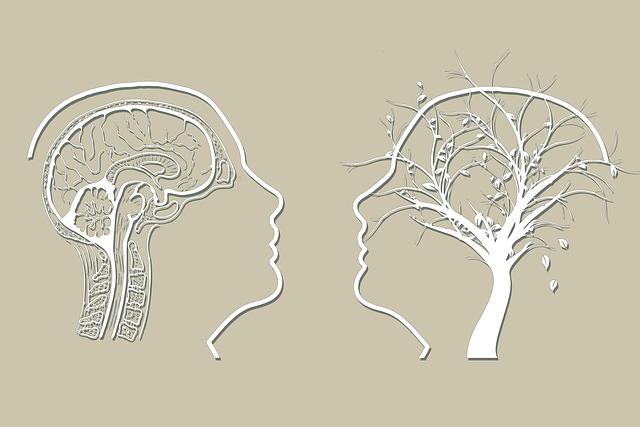Mental Health Crisis Hotlines in Highlands Ranch offer 24/7 support for acute emotional distress and mental health crises, including terminal illness. Trained professionals provide confidential, non-judgmental conversations and teach coping strategies like mindfulness meditation and stress reduction techniques as early intervention methods. Highlands Ranch Terminal Illness Therapy offers specialized care with trained therapists who navigate complex emotions and help patients express fears and process grief in safe individual sessions. Immediate support through hotlines is life-saving, providing rapid intervention, practical advice on self-care, and confidentiality to encourage honest communication. Post-crisis care through tailored therapy and counseling, like Highlands Ranch Terminal Illness Therapy, promotes emotional well-being recovery.
In today’s fast-paced world, mental health crisis hotline support services play a pivotal role in empowering individuals facing intense emotions. “Understanding Mental Health Crisis Hotlines” explores these vital resources, delving into their significance and how they provide immediate assistance. We highlight the specialized services offered by Highlands Ranch Terminal Illness Therapy, emphasizing their expertise in navigating crises. This article also examines the importance of confidentiality, post-crisis care, and who answers these critical calls, offering a comprehensive guide to available support systems.
- Understanding Mental Health Crisis Hotlines
- The Role of Highlands Ranch Terminal Illness Therapy
- Accessing Emergency Support: Who Answers the Call?
- Confidentiality and Anonymity: Ensuring Trust
- Post-Crisis Care: Continuing Support Services
Understanding Mental Health Crisis Hotlines

Mental Health Crisis Hotlines are vital resources for individuals experiencing acute emotional distress or a mental health crisis. These 24/7 services provide immediate support, offering confidential and non-judgmental conversations with trained professionals. They serve as a safe space for folks to express their feelings, receive guidance, and explore coping strategies, especially during challenging times like a terminal illness diagnosis in Highlands Ranch.
Understanding the importance of early intervention, these hotlines often employ various techniques to aid individuals in managing their mental health. This may include promoting self-awareness exercises and mindfulness meditation as tools for stress reduction and emotional regulation. Additionally, some programs offer social skills training, empowering users with effective communication strategies to navigate social interactions and build a supportive network.
The Role of Highlands Ranch Terminal Illness Therapy

Highlands Ranch Terminal Illness Therapy plays a pivotal role in addressing mental health crises by offering specialized support tailored to individuals grappling with terminal illnesses. The therapists at this facility are equipped with advanced knowledge and empathy, enabling them to navigate complex emotional landscapes alongside patients. Through individual therapy sessions, clients find safe spaces to express fears, process grief, and cultivate positive thinking—all crucial aspects of managing stress reduction methods during such challenging times.
Beyond direct therapy, the center fosters an environment conducive to building effective coping strategies. Empathy-building strategies are at the core of their approach, allowing patients to feel understood and supported. This holistic care extends beyond symptoms, focusing on enhancing overall well-being. By integrating positive thinking practices, Highlands Ranch Terminal Illness Therapy empowers individuals to embrace resilience in the face of adversity.
Accessing Emergency Support: Who Answers the Call?

When facing a mental health crisis, immediate support is crucial. In Highlands Ranch or any region, access to emergency services can be life-saving. Many areas now offer dedicated hotlines staffed by trained professionals who answer the call for help. These services are designed to provide rapid intervention and guidance during times of intense emotional distress or when individuals are at risk of self-harm. The people behind these hotlines are often mental health therapists, counselors, or paramedics with specialized training in crisis management.
The role of these support systems is not just to offer a listening ear but also to facilitate the initial stages of what could be a long road to recovery. They provide a confidential space for individuals to share their struggles and fears, offering immediate emotional healing processes and practical advice on self-care practices. For those grappling with terminal illness or other mental health challenges, these hotlines serve as a vital first step, ensuring that help is just a phone call away.
Confidentiality and Anonymity: Ensuring Trust

When individuals reach out to mental health crisis hotline support services, they often do so because they’re facing challenging situations or experiencing severe emotional distress. In such vulnerable moments, confidentiality and anonymity become paramount in fostering trust. These elements create a safe space where people can openly share their struggles without fear of judgment or repercussions, encouraging honest communication.
Maintaining confidentiality involves strict protocols that safeguard personal information. Trained professionals handle calls discreetly, ensuring that the details shared by callers remain private. This trust is further strengthened by anonymizing call data, allowing individuals to access support without revealing their identities if they choose not to. Such practices are crucial for encouraging self-awareness exercises and facilitating meaningful conversations around sensitive topics, including self-esteem improvement. Moreover, these safeguards enable mental health professionals to conduct thorough risk assessments accurately, providing targeted interventions while prioritizing the well-being of those in crisis.
Post-Crisis Care: Continuing Support Services

After a crisis has passed, ongoing support is essential for recovery and maintaining mental wellness. Many individuals who have experienced a mental health crisis benefit from continuing therapy or counseling services tailored to their unique needs. These post-crisis care programs often include regular check-ins with therapists or counselors, providing a safe space to process emotions, reflect on coping strategies, and discuss any emerging challenges. Through these sessions, individuals can develop enhanced emotional well-being promotion techniques and learn empathy building strategies that help them navigate future stressors effectively.
Highlands Ranch terminal illness therapy, for instance, focuses on supporting individuals facing serious health conditions while also addressing their mental health needs. Similarly, a Mental Wellness Podcast Series Production can offer valuable resources and insights into various aspects of mental health, providing continuous education and support beyond traditional therapy settings. By combining these ongoing services with access to effective coping mechanisms, individuals can build resilience and lead fulfilling lives despite challenges.
Mental health crisis hotline support services play a vital role in providing immediate assistance and fostering long-term recovery. As discussed, services like Highlands Ranch Terminal Illness Therapy offer specialized care, ensuring individuals receive the help they need during challenging times. With confidential and anonymous options available, these hotlines encourage those in distress to reach out without fear of judgment. Post-crisis care through continuing support services further reinforces recovery, emphasizing that healing is a journey with various stages of assistance accessible at every turn.














